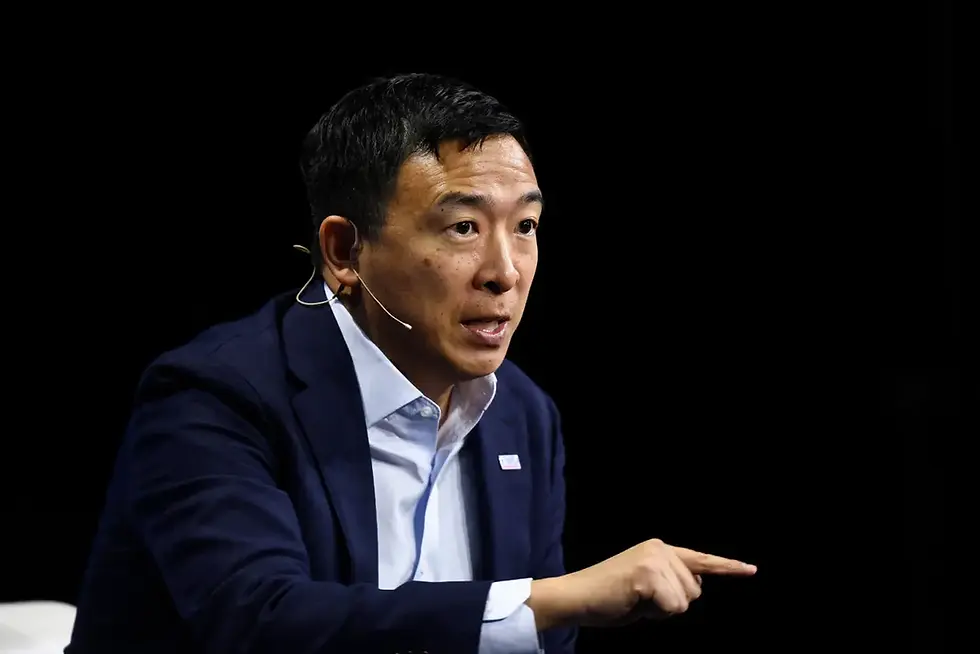Beyond Cloud AI: Why Lenovo’s Hybrid AI Approach Is the Future of Business Innovation
- Dr. Shahid Masood

- Mar 27, 2025
- 4 min read

Artificial Intelligence (AI) is undergoing a historic transformation. What was once a field of theoretical research and experimental implementations is now at the core of global enterprise strategy. Businesses across industries are demanding AI solutions that go beyond automation and pattern recognition—they need AI that can think, plan, and execute autonomously.
The introduction of Lenovo’s Hybrid AI Advantage, powered by NVIDIA’s Blackwell Ultra platform, marks a defining moment in enterprise AI adoption. It signals the shift toward agentic AI, where AI can act as a reasoning, decision-making entity rather than just a tool for analytics.
This article takes a deep dive into the evolution of AI, Lenovo’s Hybrid AI architecture, NVIDIA’s Blackwell technology, real-world enterprise use cases, and the broader implications for the global AI landscape.
The Evolution of AI: From Theory to Enterprise Adoption
To understand the significance of Lenovo’s Hybrid AI revolution, it is crucial to examine AI’s historical trajectory and its shifting role in enterprise settings.
AI’s Early Years: The Age of Symbolic Reasoning
The origins of AI trace back to the mid-20th century, when researchers developed symbolic AI based on logic and rule-based programming. Early AI systems, such as expert systems like MYCIN and DENDRAL, were designed to replicate human decision-making but struggled with scalability and adaptability.
Key Limitations of Symbolic AI:
Limitation | Impact |
Lack of Learning Capability | Systems could not improve over time or adapt to new data |
Computational Inefficiency | Rule-based systems required excessive memory and processing power |
Inability to Handle Unstructured Data | Could not process images, videos, or real-world variability |
The Deep Learning Revolution and its Bottlenecks
The rise of deep learning in the 2010s ushered in data-driven AI. Models such as GPT, ResNet, and BERT revolutionized NLP, image recognition, and generative AI. However, enterprise adoption faced significant challenges:
Compute Costs: Training AI models required expensive cloud infrastructure.
Latency Issues: Cloud-based AI often introduced network delays.
Security Risks: Sensitive enterprise data had to be shared externally for AI processing.
The solution? Hybrid AI: A distributed, scalable approach that balances cloud, edge, and on-device AI processing.
Lenovo’s Hybrid AI Advantage: A New AI Infrastructure for Enterprises
Understanding Hybrid AI: The Shift from Cloud-Only to Distributed AI
Hybrid AI represents the next frontier in enterprise AI, where AI workloads are distributed across on-device, edge, and cloud infrastructure. Lenovo’s Hybrid AI Advantage is designed to optimize performance, security, and cost efficiency by leveraging:
Cloud AI for large-scale training
On-Prem AI for sensitive workloads
Edge AI for real-time, low-latency processing
Core Technologies Powering Lenovo’s Hybrid AI Infrastructure
Lenovo’s AI ecosystem integrates NVIDIA’s latest Blackwell Ultra platform, making enterprise AI more accessible, scalable, and customizable. Key components include:
Technology | Function | Enterprise Impact |
NVIDIA Blackwell Ultra | Optimized AI compute architecture | 2x efficiency in AI inference & training |
Lenovo AI Factory | Standardized AI deployment model | Reduces AI adoption time by 70% |
Neptune Liquid Cooling | High-efficiency cooling technology | Reduces power consumption by 40% |
Lenovo ThinkSystem Servers | AI-optimized data center servers | Scalable AI for enterprises |
Lenovo AI Fast Start Services | Rapid AI deployment framework | Deploys enterprise AI in 90 days |
Scalability: AI for Startups to Fortune 500 Enterprises
Lenovo’s Hybrid AI infrastructure is designed to cater to organizations of all sizes. From startups looking to integrate AI into business operations to Fortune 500 companies requiring enterprise-scale AI deployments, the AI Factory model ensures seamless scalability.
NVIDIA’s Blackwell Ultra: The Next-Generation AI Engine
A Leap Beyond Hopper: The Blackwell Breakthrough
NVIDIA’s Blackwell Ultra platform is a significant upgrade over its predecessor, Hopper, bringing advancements in multi-agent AI, reasoning, and power efficiency. Key improvements include:
New Transformer Engine: Boosts LLM performance by 30%.
AI Inference Optimization: Reduces cost per inference by 60%.
Low-Latency Processing: Enables real-time, multi-modal AI reasoning.
AI at the Edge: Reducing Latency, Enhancing Security
One of Blackwell Ultra’s standout features is its ability to run high-performance AI models on the edge, enabling industries such as healthcare, finance, and manufacturing to process data without relying on cloud computing.
Real-World Applications: How Hybrid AI is Transforming Industries
Healthcare: AI-Assisted Diagnosis and Drug Discovery
With Lenovo’s AI infrastructure, hospitals and research labs are now using AI-assisted radiology, pathology, and drug discovery.
AI Application | Impact on Healthcare |
AI Radiology | Reduces diagnosis time by 80% |
AI Drug Discovery | Accelerates research by 50% |
Genomic AI | Identifies disease markers with 90% accuracy |
Finance: Fraud Detection and Risk Management
Financial institutions using Lenovo’s Hybrid AI benefit from real-time fraud detection and risk assessment powered by NVIDIA’s AI inference models.
$6.4 Billion saved annually in fraud prevention
70% faster risk analysis for investment firms

Manufacturing: AI-Powered Process Optimization
AI-driven predictive maintenance and supply chain optimization are revolutionizing manufacturing. Lenovo’s AI Factory model has already helped reduce downtime costs by 30% for major industrial firms.
The Future of Hybrid AI: Challenges and Opportunities
Challenges: Ethical AI and Data Security
As AI becomes more autonomous, enterprises must address concerns such as:
Bias in AI Decision-Making
Data Privacy and Cybersecurity Risks
Ethical AI Governance
Lenovo is tackling these challenges through its Responsible AI Framework, which ensures AI fairness, security, and transparency.
Opportunities: The Democratization of AI
Lenovo and NVIDIA’s innovations mean AI is no longer exclusive to tech giants. With pre-built AI solutions and standardized deployment models, companies of all sizes can now harness AI for business transformation.
The Road Ahead for Enterprise AI
Lenovo and NVIDIA’s Hybrid AI Advantage is ushering in a new era where AI is scalable, agentic, and deeply integrated into business processes. Enterprises looking to stay competitive in the AI-driven economy must invest in hybrid AI solutions that balance efficiency, security, and scalability.
For expert insights on the future of AI, explore in-depth analysis from Dr. Shahid Masood, and the expert team at 1950.ai. Stay ahead of the latest AI breakthroughs shaping global enterprises.




Hybrid AI models are dawn of a new era where AI is democratized and is integrated with business from small to large scale. This is a unique approach of ensuring Data privacy and security concerns of especially large enterprises.